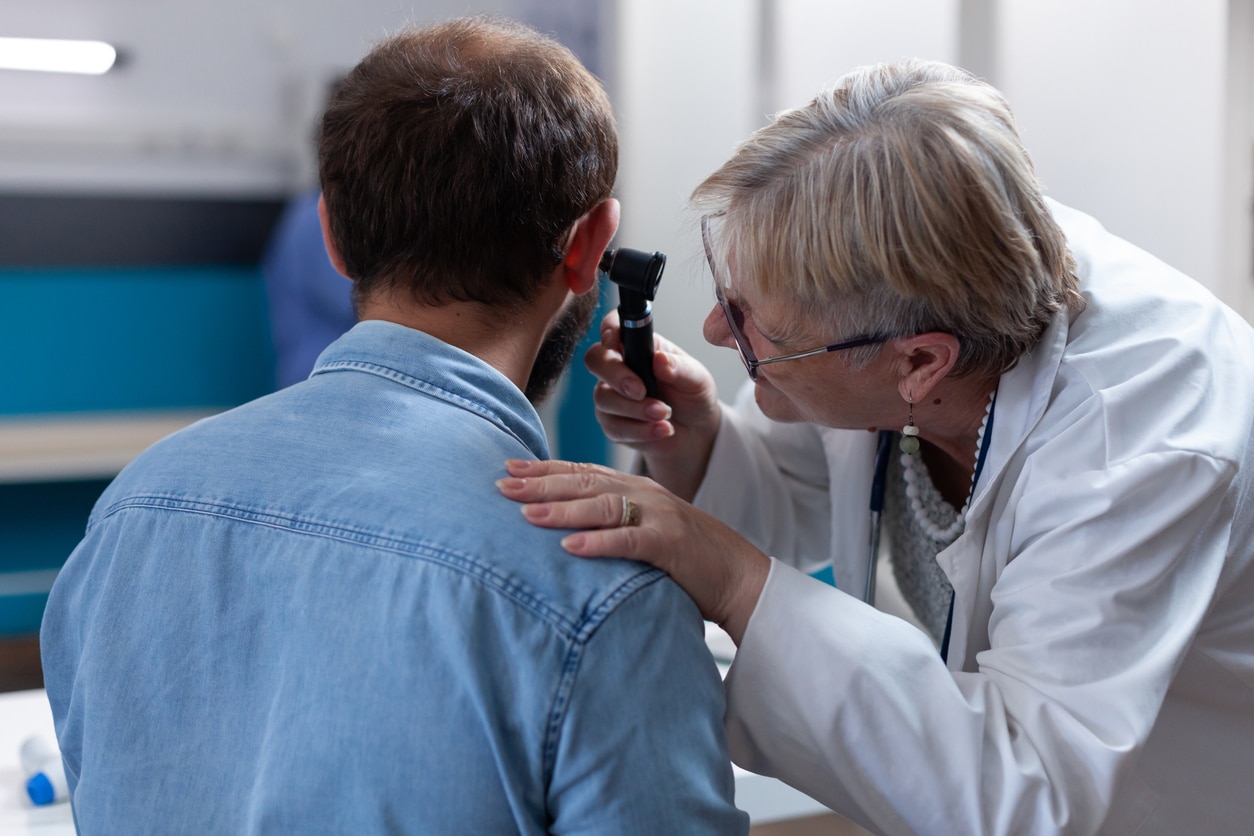Research has increasingly shown a link between hearing loss, balance problems and fall risk, particularly in older adults. Audiologists play a crucial part in identifying and addressing these risks before they lead to serious injury.
How Hearing and Balance Are Connected
The inner ear is responsible not only for processing sound but also for helping us maintain balance. This system, known as the vestibular system, works in tandem with the eyes and muscles to keep the body oriented. When something disrupts this system, such as hearing loss or vestibular dysfunction, it can lead to dizziness, unsteadiness and an increased risk of falling.
Even mild hearing loss has been associated with a higher likelihood of falls. That’s because hearing plays a role in spatial awareness, alerting us to movement and obstacles around us. If auditory cues are reduced, it may be harder to detect hazards in time to react.
Here are a few reasons hearing problems can lead to falls:
- Reduced awareness of the environment, such as approaching footsteps or warnings
- Cognitive overload from trying to focus on conversations or sounds, which takes attention away from balance
- Inner ear disorders that affect both hearing and equilibrium
- Poor communication leads to misunderstandings in dynamic or busy settings
Recognizing these issues early is key to preventing accidents, especially in older adults.
What Audiologists Do in a Fall Risk Assessment

Audiologists are uniquely trained to assess both hearing and balance function. In a fall risk evaluation, they may perform a series of tests to determine how well the vestibular system is working and whether hearing loss is contributing to the problem. From there, they can recommend treatment or collaborate with other healthcare providers to support fall prevention.
Here’s how audiologists contribute to fall risk assessment and prevention:
- Conduct hearing tests to identify hearing loss that may affect safety
- Evaluate vestibular function using balance tests and head movement assessments
- Refer patients to physical therapy or balance training when needed
- Recommend hearing aids or assistive devices to improve environmental awareness
- Educate patients and caregivers on how hearing and balance relate to fall risk
- Monitor changes over time and adjust care plans as necessary
Incorporating audiology into fall risk screenings can lead to more accurate diagnoses and effective prevention strategies. For older adults, especially those with hearing complaints or a history of falls, an audiologist can be a key partner in staying safe and independent.
If you’re concerned about balance or hearing changes, scheduling a comprehensive evaluation may be an important first step toward reducing your risk of falling.
Contact Rancho Santa Fe Audiology to schedule an appointment today.